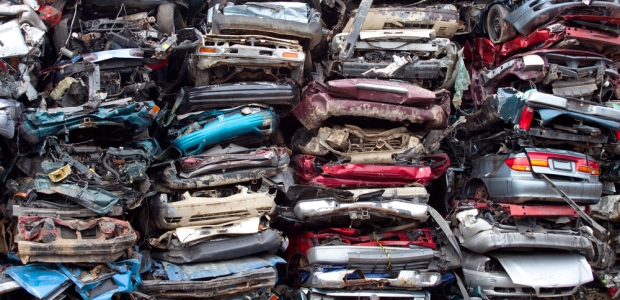
Hearing Concerns Proposed California Regulations for Metal Shredders
Currently there are six metal shredding facilities in the state. The California Department of Toxic Substances Control plans to set enforceable operating requirements for metal shredding facilities through a hazardous waste permit.
The California Department of Toxic Substances Control will host an informal public workshop on June 26 in Sacramento to present information on proposed regulations to establish a Conditional Exclusion for Chemically Treated Metal Shredder Residue. The department also is proposing the new regulations to add safeguards that increase protections for human health, safety, and the environment.
DTSC completed a comprehensive analysis of metal shredding facilities, their processes and wastes, and potential impacts on human health and the environment, pursuant to a 2014 bill passed by state legislators. That law required metal shredding facilities to be thoroughly evaluated and regulated by DTSC. The department published its findings in a report titled "Draft Evaluation and Analysis of Metal Shredding Facilities and Metal Shredder Wastes" in January 2018.
The report says there are estimated to be 2,500 scrap metal recycling facilities in California, and combined they collected and processed for export an estimated 7 million tons of scrap metal, worth $5 billion, in 2014. Currently there are six metal shredding facilities in the state, it says.
The department plans to set enforceable operating requirements for metal shredding facilities through a hazardous waste permit, and it plans to issue regulations that exclude Chemically Treated Metal Shredder Residue (CTMSR) from classification as a hazardous waste, with certain limitations. The draft report says the department has concluded that CTMSR can continue to be classified as a nonhazardous waste and can continue to be disposed of, or used as Alternative Daily Cover, in solid waste landfills in California, with certain limitations.
Stakeholders can attend the three-hour workshop in-person or view the presentation via a live webcast. The workshop will be held at DTSC's Sacramento Regional Office and is scheduled to start at 1 p.m. local time.
California law defines a "metal shredding facility" as an operation that uses a shredding technique to process end-of-life vehicles, appliances, and other forms of scrap metal to facilitate the separation and sorting of ferrous metals, nonferrous metals, and other recyclable materials from non-recyclable materials. A "metal shredding facility" does not include a feeder yard, a metal crusher, or a metal baler, if that facility does not otherwise conduct metal shredding operations. The shredding of scrap metal, such as old cars, results in a mixture of recyclable materials (such as ferrous metals and nonferrous metals) and non-recyclable material -- metal shredder waste, which consists mainly of glass, fiber, rubber, automobile fluids, dirt, and plastics found in automobiles and household appliances. Because scrap metal contains regulated hazardous constituents, it can contaminate and ultimately cause metal shredder waste to exhibit a characteristic of hazardous waste for toxicity. In a 2002 draft report on auto shredder waste, DTSC showed that metal shredder waste often exceeded the soluble threshold limit concentrations (STLCs) for lead, cadmium, and zinc using the Waste Extraction Test method and the total threshold limit concentration (TTLC) for lead, copper, and zinc.